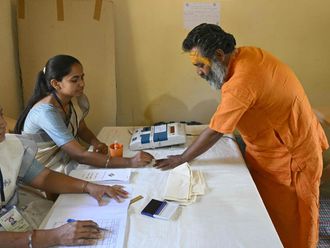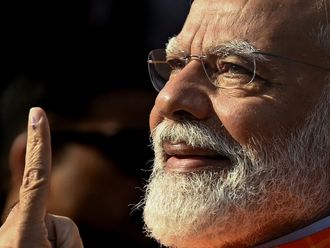Dubai: Jallikattu, the bull taming sport, has been part of the Tamil people’s folklore for centuries.
Traditionally it is held on the day after the harvest festival, mostly on January 15 — a day to honour the farmers and cattle who serve mankind throughout the year.
On this day, the cattle’s horns are painted and decorated and paraded through the streets of villages and — until a few decades ago — even the cities.
So in this traditional backdrop, when the sport was banned under the pretext that the bulls wee being harmed, that decision has deprived the village youth a chance to showcase their valour.
It is not just a sport, it also creates a bond between man and animal, which is similar to horse racing or a dog show.
Also if these bulls win, it will cover the cost of rearing the animal.
There may have been an odd instance of animal cruelty, which could happen in any sport. Anywhere there is money involved, there is also a chance of someone aiming to gain an unfair advantage.
When a match is fixed in cricket the sport is not banned but the guilty is punished. Similarly, there are stringent rules and regulations in place to ensure that the animals are not tortured.
But despite these measures, the Supreme Court did not spare the sport and maintained its stance.
On the contrary, it is the youth or the participant who more often suffers an injury, sometimes permanent damage or even killed. But the village youth feel it is part of any blood sport. Even sportsmen die in other contact sport held in air-conditioned arenas.
But nobody pushed these participants, they enter the arena on their own.
Another popular thought is, since it requires great strength to tame the bull, the youth spend hours getting fit for the event, months before and hence stops them from getting into bad habits.












